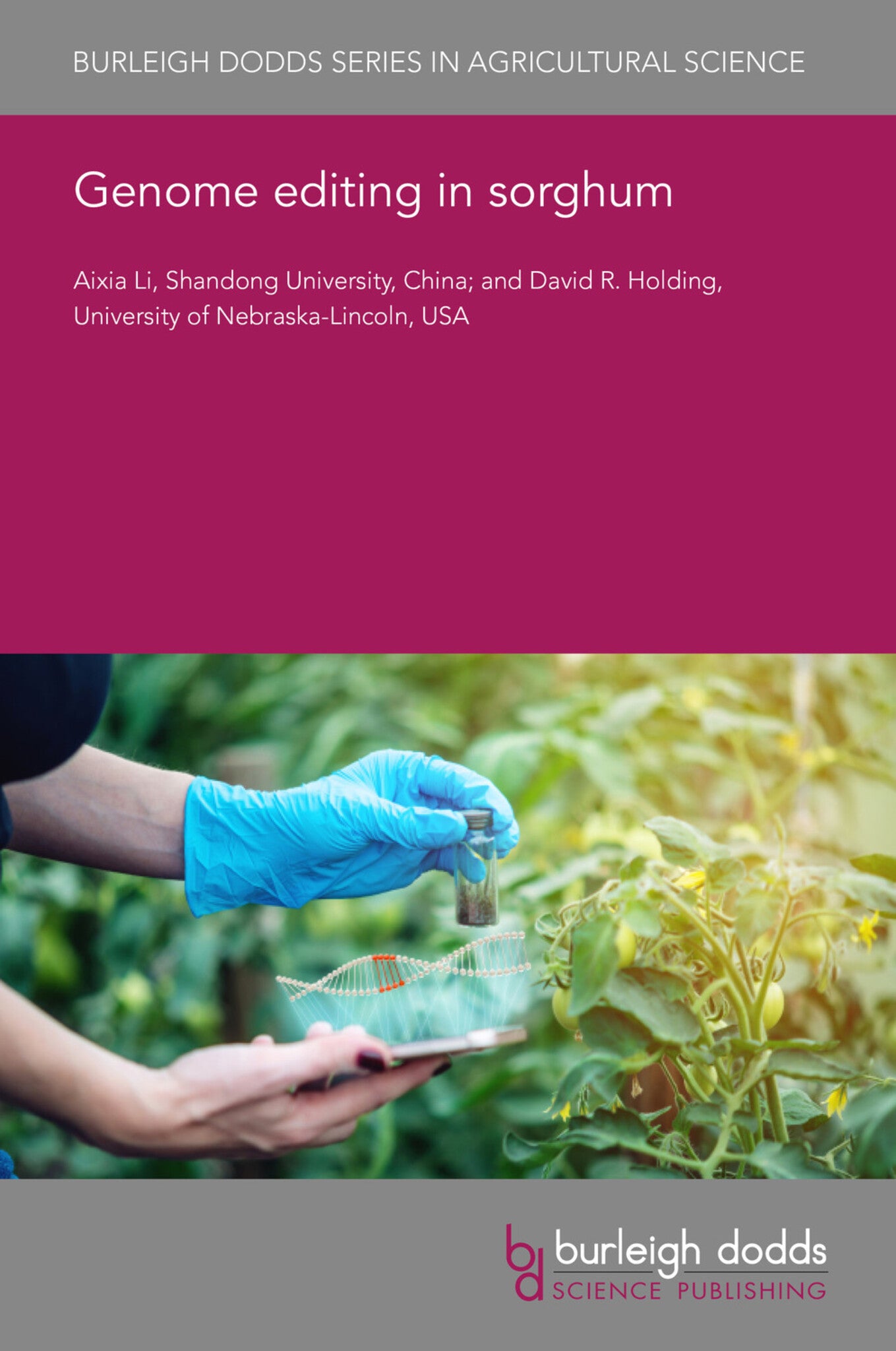We're sorry. An error has occurred
Please cancel or retry.
Genome editing in sorghum
Regular price
£25.00
Sale price
£25.00
Regular price
£25.00
Unit price
/
per
Sale
Sold out
Re-stocking soon
Genetic engineering plays a key role in plant functional research and genetic improvement. A novel and powerful gene editing technique, CRISPR/Cas9, which was developed from a type II bacterial imm...
Read More

Some error occured while loading the Quick View. Please close the Quick View and try reloading the page.
Couldn't load pickup availability
- Format:
-
19 April 2021

Genetic engineering plays a key role in plant functional research and genetic improvement. A novel and powerful gene editing technique, CRISPR/Cas9, which was developed from a type II bacterial immune system, opened up a new era in precision genetic engineering in plants. This technique is based on a non-permanent transgene system and is starting to be adopted for precise gene editing in major cereal crops. It offers tremendous potential to accelerate crop improvement in a way that potentially reduces or eliminates the cumbersome and expensive regulatory processes associated with traditional transgenic crops. This chapter describes the advance of gene editing applied to sorghum, a drought tolerant C4 crop, and a successful strategy of CRISPR/Cas9 mediated gene family editing to improve sorghum digestibility and protein quality. It also discusses future prospects of CRISPR/Cas9 gene editing for sorghum genetic improvement.

Price: £25.00
Publisher: Burleigh Dodds Science Publishing
Imprint: Burleigh Dodds Science Publishing
Series: Burleigh Dodds Series in Agricultural Science
Publication Date:
19 April 2021
ISBN: 9781801461436
Format: eBook
BISACs:
TECHNOLOGY & ENGINEERING / Agriculture / Agronomy / Crop Science, Agronomy and crop production, TECHNOLOGY & ENGINEERING / Agriculture / Sustainable Agriculture, Sustainable agriculture, Botany and plant sciences

1 Introduction 2 Advances of gene editing in sorghum 3 Application of CRISPR/Cas9 gene editing for sorghum protein improvement 4 Future trends 5 Conclusion 6 References



